Best of 2020: Classical CDs | reviews, news & interviews
Best of 2020: Classical CDs
Best of 2020: Classical CDs
Twelve of the year's best classical releases

My first shortlist had 27 discs on it, but, after much soul-searching, I’ve whittled it down to 12. These are all physical releases: I like being able to read sleeve notes in print as opposed to a screen, and CDs do sound better. Here goes:
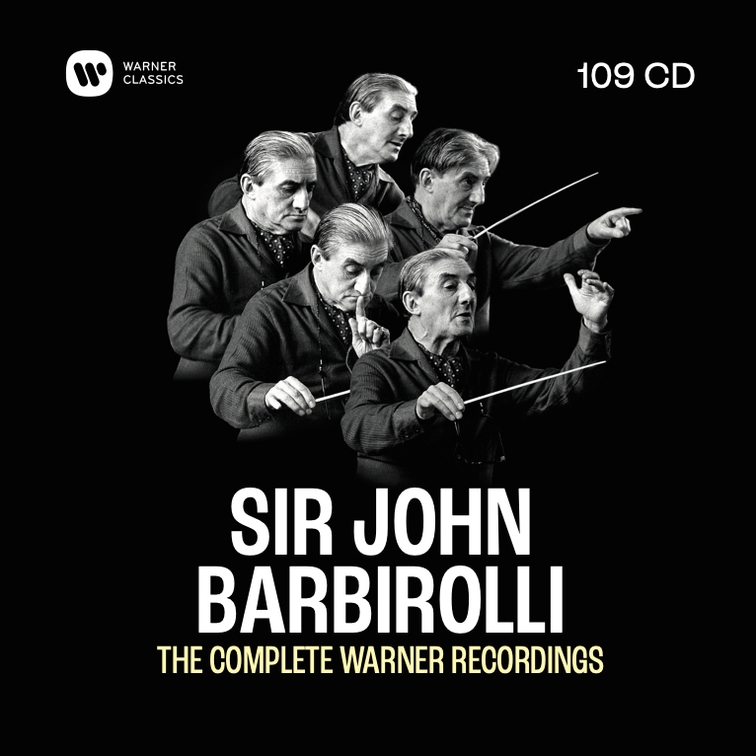 Conductor Sir John Barbirolli made most of his recordings for EMI over a career spanning more than four decades. Warner Classics now owns his back catalogue, releasing a giant box set (109 discs) to mark the 50th anniversary of the conductor’s death. Barbirolli’s charismatic and emotive readings of music by Elgar, Vaughan Williams, Mahler and Sibelius still convince. And there’s a mass of freshly remastered material from the 1950s, when Barbirolli and his beloved Hallé Orchestra recorded for the Pye label. Handsomely packaged, there’s enough here to keep you entertained for years.
Conductor Sir John Barbirolli made most of his recordings for EMI over a career spanning more than four decades. Warner Classics now owns his back catalogue, releasing a giant box set (109 discs) to mark the 50th anniversary of the conductor’s death. Barbirolli’s charismatic and emotive readings of music by Elgar, Vaughan Williams, Mahler and Sibelius still convince. And there’s a mass of freshly remastered material from the 1950s, when Barbirolli and his beloved Hallé Orchestra recorded for the Pye label. Handsomely packaged, there’s enough here to keep you entertained for years.
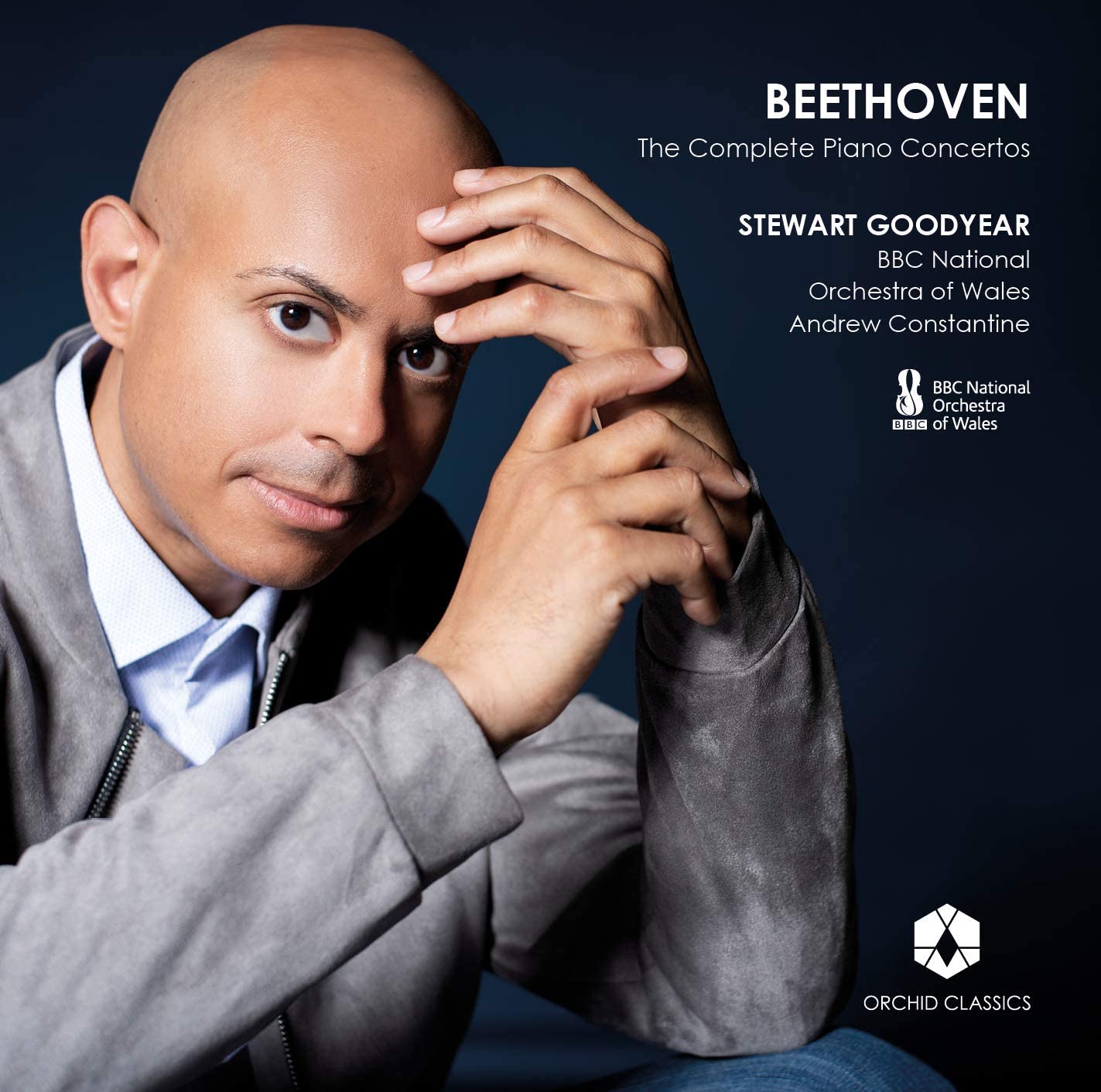 Three Beethoven sets hit the spot for me. Igor Levit’s technically dazzling, thoughtful cycle of the complete Piano Sonatas (Sony) is a modern reference version, and I was beguiled by a joyous set of the five Piano Concertos from Stewart Goodyear, deftly accompanied by the BBC National Orchestra of Wales under Andrew Constantine (Orchid Classics). Other excellent sets came from Stephen Hough and Jean-Efflam Bavouzet, but Goodyear’s was my favourite. Period instrument wind ensemble Boxwood & Brass gave us a quirky version of Beethoven’s Symphony No.7 arranged, anonymously, for wind octet (Resonus Classics) . Abridged, and transposed down a tone to help preserve the hornplayers’ lips, it’s still a treat, the original’s power and exuberance intact.
Three Beethoven sets hit the spot for me. Igor Levit’s technically dazzling, thoughtful cycle of the complete Piano Sonatas (Sony) is a modern reference version, and I was beguiled by a joyous set of the five Piano Concertos from Stewart Goodyear, deftly accompanied by the BBC National Orchestra of Wales under Andrew Constantine (Orchid Classics). Other excellent sets came from Stephen Hough and Jean-Efflam Bavouzet, but Goodyear’s was my favourite. Period instrument wind ensemble Boxwood & Brass gave us a quirky version of Beethoven’s Symphony No.7 arranged, anonymously, for wind octet (Resonus Classics) . Abridged, and transposed down a tone to help preserve the hornplayers’ lips, it’s still a treat, the original’s power and exuberance intact.
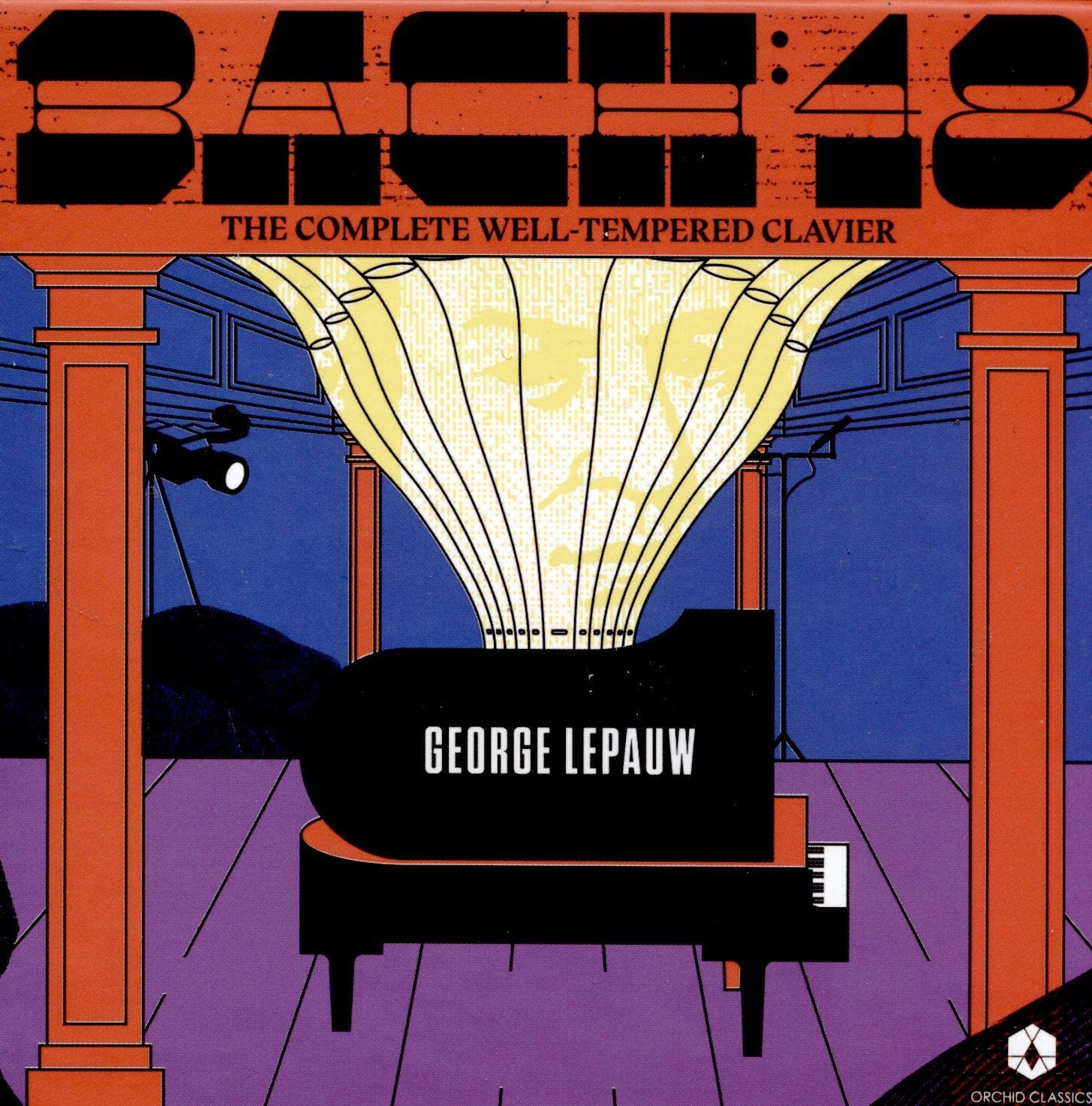 Also from Orchid came a stylishly designed and highly distinctive Bach Well-Tempered Clavier from pianist George Lepauw, one of those recordings which you’re compelled to digest in a single long sitting. Baritone Holger Falk’s Il Gondoliere Veneziano, subtitled “A Musical Journey Through Venice” (Prospero Classical), offered listeners an immersive journey through the 17th century city, complete with atmospheric sound effects. Great fun, and best enjoyed via headphones. There are dozens of recommendable recordings of Shostakovich’s two cello concertos, but Alban Gerhardt’s new disc on Hyperion belongs at the top of the pile. Buy it for a revelatory account of the elusive Concerto No.2, Jukka-Pekka Saraste’s pin-sharp support adding to the intensity.
Also from Orchid came a stylishly designed and highly distinctive Bach Well-Tempered Clavier from pianist George Lepauw, one of those recordings which you’re compelled to digest in a single long sitting. Baritone Holger Falk’s Il Gondoliere Veneziano, subtitled “A Musical Journey Through Venice” (Prospero Classical), offered listeners an immersive journey through the 17th century city, complete with atmospheric sound effects. Great fun, and best enjoyed via headphones. There are dozens of recommendable recordings of Shostakovich’s two cello concertos, but Alban Gerhardt’s new disc on Hyperion belongs at the top of the pile. Buy it for a revelatory account of the elusive Concerto No.2, Jukka-Pekka Saraste’s pin-sharp support adding to the intensity.
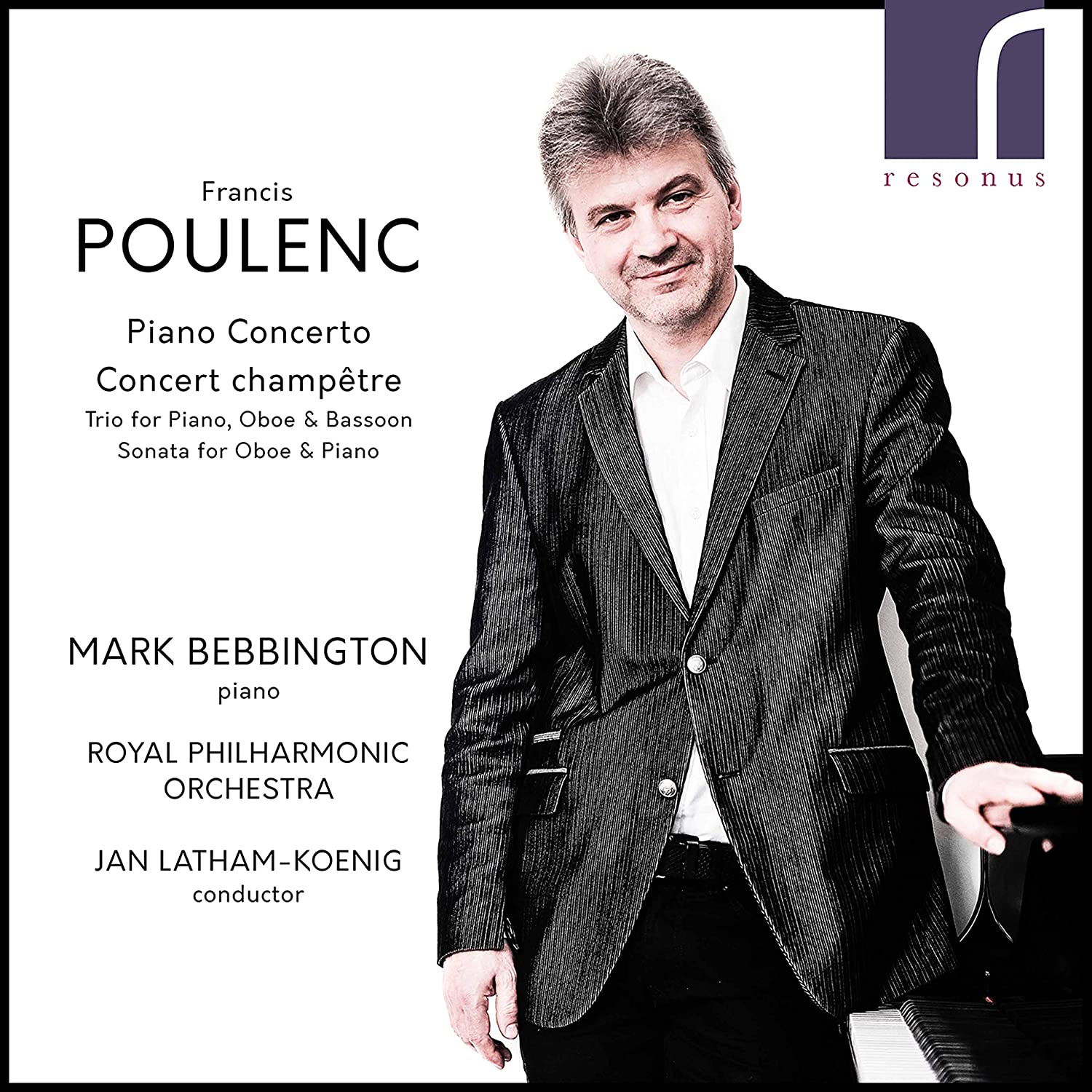 Pianist Mark Bebbington released an effervescent Poulenc anthology on Resonus Classics in the spring, the composer’s delicious Piano Concerto coupled with the Concert champêtre, heard on piano instead of harpsichord. Bebbington’s dry wit suits the piece perfectly, Jan Latham Koenig's Royal Philharmonic Orchestra highlighting a wealth of orchestral detail that’s too often buried. A favourite choral release was Voices from the Wilderness (Bright Shiny Things), a collection of unaccompanied hymns written by the residents of an 18th century religious community in Pennsylvania. These were some of the earliest named composers active in the US, and having their music recorded in the room for which they were written makes this disc especially poignant.
Pianist Mark Bebbington released an effervescent Poulenc anthology on Resonus Classics in the spring, the composer’s delicious Piano Concerto coupled with the Concert champêtre, heard on piano instead of harpsichord. Bebbington’s dry wit suits the piece perfectly, Jan Latham Koenig's Royal Philharmonic Orchestra highlighting a wealth of orchestral detail that’s too often buried. A favourite choral release was Voices from the Wilderness (Bright Shiny Things), a collection of unaccompanied hymns written by the residents of an 18th century religious community in Pennsylvania. These were some of the earliest named composers active in the US, and having their music recorded in the room for which they were written makes this disc especially poignant.
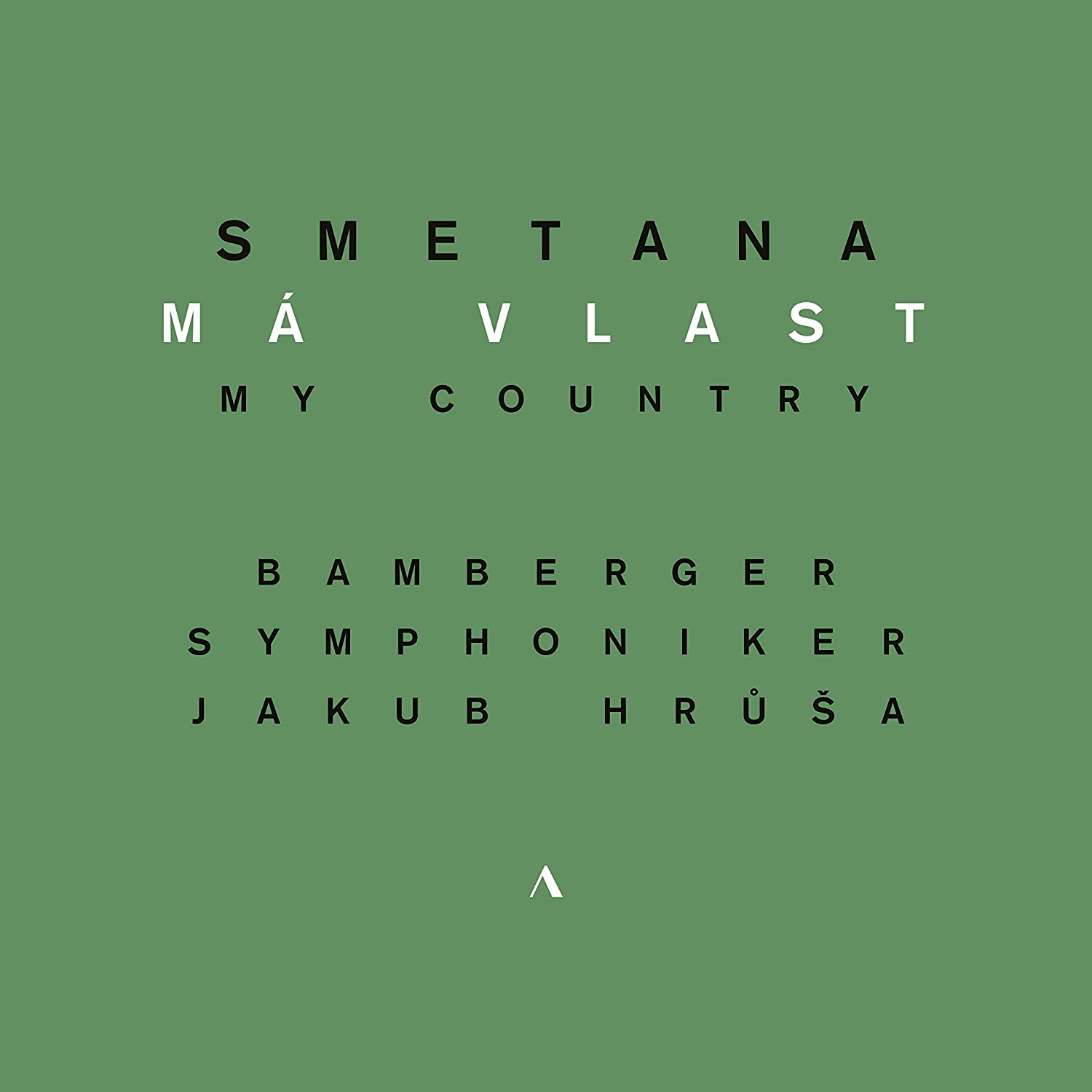 Jakub Hrůša's third account of Smetana's Má Vlast was released on 45rpm vinyl (Accentus Music). Cut direct-to-disc and recorded just a handful of microphones, this set has a unique electricity, the performance captured in glorious analogue sound. You have to sit down and sit still to listen to it. It’s just like attending an orchestral concert, and a compelling justification for the validity of vinyl in the age of streaming. Sarah Willis’s Mozart y Mambo (Alpha Classics), recorded in Havana, saw the effervescent Berliner Philharmoniker horn player tackling Mozart’s 3rd Horn Concerto and Concert Rondo alongside a selection of popular Cuban numbers. Surely the most enjoyable crossover disc of the year, a percentage of the CD profits helping to buy instruments for the members of the Havana Lyceum Orchestra.
Jakub Hrůša's third account of Smetana's Má Vlast was released on 45rpm vinyl (Accentus Music). Cut direct-to-disc and recorded just a handful of microphones, this set has a unique electricity, the performance captured in glorious analogue sound. You have to sit down and sit still to listen to it. It’s just like attending an orchestral concert, and a compelling justification for the validity of vinyl in the age of streaming. Sarah Willis’s Mozart y Mambo (Alpha Classics), recorded in Havana, saw the effervescent Berliner Philharmoniker horn player tackling Mozart’s 3rd Horn Concerto and Concert Rondo alongside a selection of popular Cuban numbers. Surely the most enjoyable crossover disc of the year, a percentage of the CD profits helping to buy instruments for the members of the Havana Lyceum Orchestra.
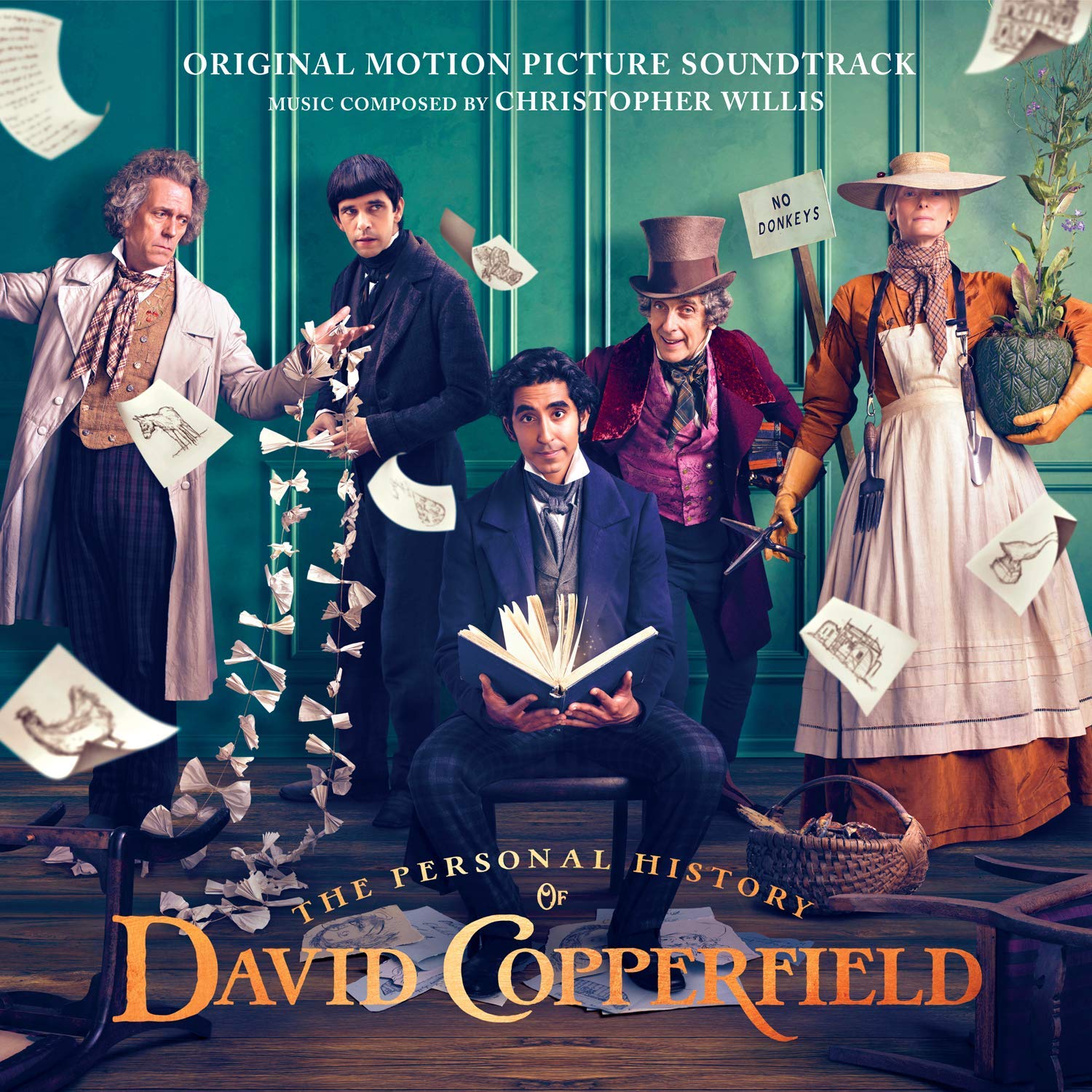 However, if marooned on a mythical desert island, I’d take a film score. Christopher Willis’s soundtrack for Armando Ianucci’s life-enhancing David Copperfield adaptation is glorious. As recorded by the Aurora Orchestra under Willis’s friend Nicholas Collon, it sings and soars, the references to Vaughan Williams, Tippett, Elgar and Britten neatly woven in. Too many contemporary film composers just write short snippets, but Willis knows how to develop and sustain his ideas, much of the score derived from a simple four-note motif. Handsomely produced, it sounds even better on vinyl.
However, if marooned on a mythical desert island, I’d take a film score. Christopher Willis’s soundtrack for Armando Ianucci’s life-enhancing David Copperfield adaptation is glorious. As recorded by the Aurora Orchestra under Willis’s friend Nicholas Collon, it sings and soars, the references to Vaughan Williams, Tippett, Elgar and Britten neatly woven in. Too many contemporary film composers just write short snippets, but Willis knows how to develop and sustain his ideas, much of the score derived from a simple four-note motif. Handsomely produced, it sounds even better on vinyl.
Explore topics
Share this article
The future of Arts Journalism
You can stop theartsdesk.com closing!
We urgently need financing to survive. Our fundraising drive has thus far raised £49,000 but we need to reach £100,000 or we will be forced to close. Please contribute here: https://gofund.me/c3f6033d
And if you can forward this information to anyone who might assist, we’d be grateful.

Subscribe to theartsdesk.com
Thank you for continuing to read our work on theartsdesk.com. For unlimited access to every article in its entirety, including our archive of more than 15,000 pieces, we're asking for £5 per month or £40 per year. We feel it's a very good deal, and hope you do too.
To take a subscription now simply click here.
And if you're looking for that extra gift for a friend or family member, why not treat them to a theartsdesk.com gift subscription?
more Classical music
 Solomon, OAE, Butt, QEH review - daft Biblical whitewashing with great choruses
Even a top soprano and mezzo can’t make this Handel paean wholly convincing
Solomon, OAE, Butt, QEH review - daft Biblical whitewashing with great choruses
Even a top soprano and mezzo can’t make this Handel paean wholly convincing
 Two-Piano Gala, Kings Place review - shining constellations
London Piano Festival curators and illustrious friends entertain and enlighten
Two-Piano Gala, Kings Place review - shining constellations
London Piano Festival curators and illustrious friends entertain and enlighten
 Echo Vocal Ensemble, Latto, Union Chapel review - eclectic choral programme garlanded with dance
Beautiful singing at the heart of an imaginative and stylistically varied concert
Echo Vocal Ensemble, Latto, Union Chapel review - eclectic choral programme garlanded with dance
Beautiful singing at the heart of an imaginative and stylistically varied concert
 Scott, Irish Baroque Orchestra, Whelan, RIAM, Dublin review - towards a Mozart masterpiece
Characteristic joy and enlightenment from this team, but a valveless horn brings problems
Scott, Irish Baroque Orchestra, Whelan, RIAM, Dublin review - towards a Mozart masterpiece
Characteristic joy and enlightenment from this team, but a valveless horn brings problems
 Classical CDs: Voice flutes, flugelhorns and froth
Baroque sonatas, English orchestral music and an emotionally-charged vocal recital
Classical CDs: Voice flutes, flugelhorns and froth
Baroque sonatas, English orchestral music and an emotionally-charged vocal recital
 Kanneh-Mason, Britten Sinfonia, Shave, Milton Court - a grin and a big beaming smile
A pair of striking contemporary pieces alongside two old favourites
Kanneh-Mason, Britten Sinfonia, Shave, Milton Court - a grin and a big beaming smile
A pair of striking contemporary pieces alongside two old favourites
 theartsdesk at the New Ross Piano Festival - Finghin Collins’ musical rainbow
From revelatory Bach played with astounding maturity by a 22 year old to four-hand jazz
theartsdesk at the New Ross Piano Festival - Finghin Collins’ musical rainbow
From revelatory Bach played with astounding maturity by a 22 year old to four-hand jazz
 First Person: Manchester Camerata's Head of Artistic Planning Clara Marshall Cawley on questioning the status quo
Five days of free events with all sorts of audiences around Manchester starts tomorrow
First Person: Manchester Camerata's Head of Artistic Planning Clara Marshall Cawley on questioning the status quo
Five days of free events with all sorts of audiences around Manchester starts tomorrow
 Goldscheider, Brother Tree Sound, Kings Place review - music of hope from a young composer
Unusual combination of horn, strings and electronics makes for some intriguing listening
Goldscheider, Brother Tree Sound, Kings Place review - music of hope from a young composer
Unusual combination of horn, strings and electronics makes for some intriguing listening
 theartsdesk Q&A: composer Donghoon Shin on his new concerto for pianist Seong-Jin Cho
Classical music makes its debut at London's K-Music Festival
theartsdesk Q&A: composer Donghoon Shin on his new concerto for pianist Seong-Jin Cho
Classical music makes its debut at London's K-Music Festival

Add comment